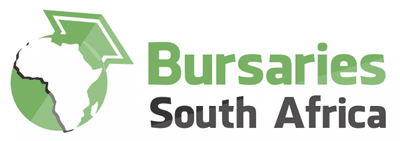Funding Options for University Students in South Africa
Tertiary education is very costly and unaffordable for most South Africans, but is highly necessary if you plan on entering a professional career such as Engineering, Accounting, Law, Medicine, Teaching, Science and more.
Of course there is the option to take out a student loan with one of the big 4 banks, but once students have completed their studies and have found employment, this money must be paid back (with interest). The other obstacle to taking out a student loan is that you need a parent or guardian to stand surety for you.
There is however another option for students who are in financial need but wish to pursue their tertiary studies, two means to free education:
Bursaries
Bursaries are monetary awards granted by private organisations, government departments and study institutions. They are granted based on either academic performance or financial need (and sometimes both).
These awards generally require students to “work back” the bursary award by taking up employment at the funding company once they have graduated.
Coverage will differ between each bursary programme, but typically includes tuition fees, registration fees, examination fees, prescribed books and study materials, accommodation, meals, travel allowance and sometimes even a laptop computer.
Apart from the financial aspect of the bursary award, many bursary providers also provide students with mentors, vacation work and practical on-the-job training.
SA Bursaries has made it easy for students to access bursary opportunities and submit online bursary applications.
See which bursaries are OPEN for application here
NSFAS (National Student Financial Aid Scheme) Funding
NSFAS is a student bursary and loan scheme implemented and managed by the South African government and funded by the Department of Higher Education and Training.
The funding is available to University and TVET students, and covers the cost of accommodation, transport, book allowances, living allowances and incidental/ personal care allowance. The value of the allowances differs based on certain criteria.
Students who wish to apply for NSFAS funding must have South African citizenship, must be able to prove financial need by way of the NSFAS means test (students who are SASSA grant recipients automatically qualify for NSFAS funding), must have applied or intend on applying for studies at a TVET College or public University and must have a good academic record.
(If you would like to find out more about NSFAS and how to apply, find more information here).
University financial aid/ private sponsorship
Many universities in South Africa offer private scholarships and bursaries in specific faculties. The criteria of these awards differs by institution and students are encouraged to visit the universities website or contact the universities financial aid department for further information.
Crowdfunding
Feenix is a South African crowdfunding platform, supported by Standard Bank, that was created to help students pay for their education. The platform offers students a simple and secure way to raise funds for their outstanding university fees.
In order to register on the Feenix platform, students must be a South African citizen/ permanent resident/ refugee or asylum seeker. The student must be registered at a public South African university and must have current or historical debt owing to their university. Furthermore, students must have a total combined household income of less than R600 000 per year.
Another similar crowdfunding platform is backabuddy.
Student loans
Lastly, if you are unable to secure funding via any of the above ways, a student loan may be an option for you.
Student loans are generally provided by banks in South Africa and require that the student has a parent or guardian that receives an income, who can stand surety for them and service the interest of the loan.
Read more about student loans here
Read more about:
- FNB Student Loans here
- Standard Bank Student Loans here
- Standard Bank Student Loans without surety here
- Absa Student Loans here
- Nedbank Student Loans here
Read our other tips and articles here:
Read our top tips on submitting your bursary application for the best chance of success.
Read our tips on how to write a bursary motivational letter here.
Read about how to prepare for a bursary interview here here.
Read about the various ways to get free education in South Africa.
Read about the National Benchmark Test (NBT) for University Entrance.
Are you following us on social media? We post our latest bursary opportunities and reminders of bursaries closing soon on Facebook, Twitter and Instagram.



This post was last updated in July 2023.
SA Bursaries wishes you the best of luck with your application! Please remember to SHARE this page with anyone you know who may be in need of bursary funding.
